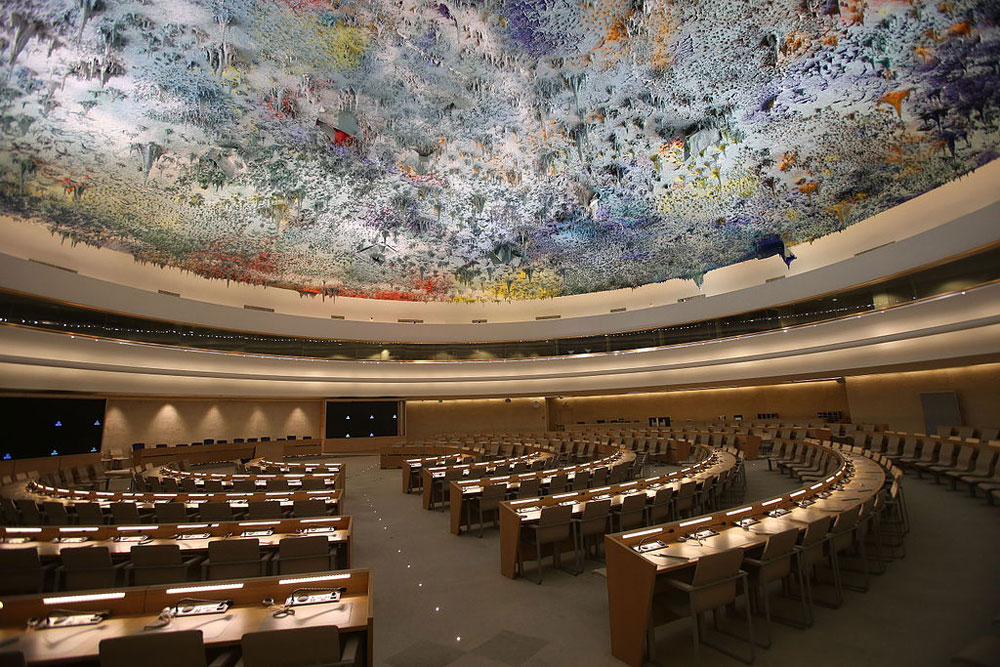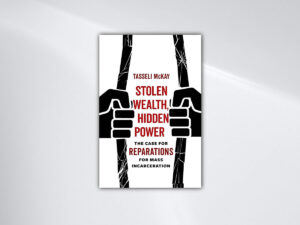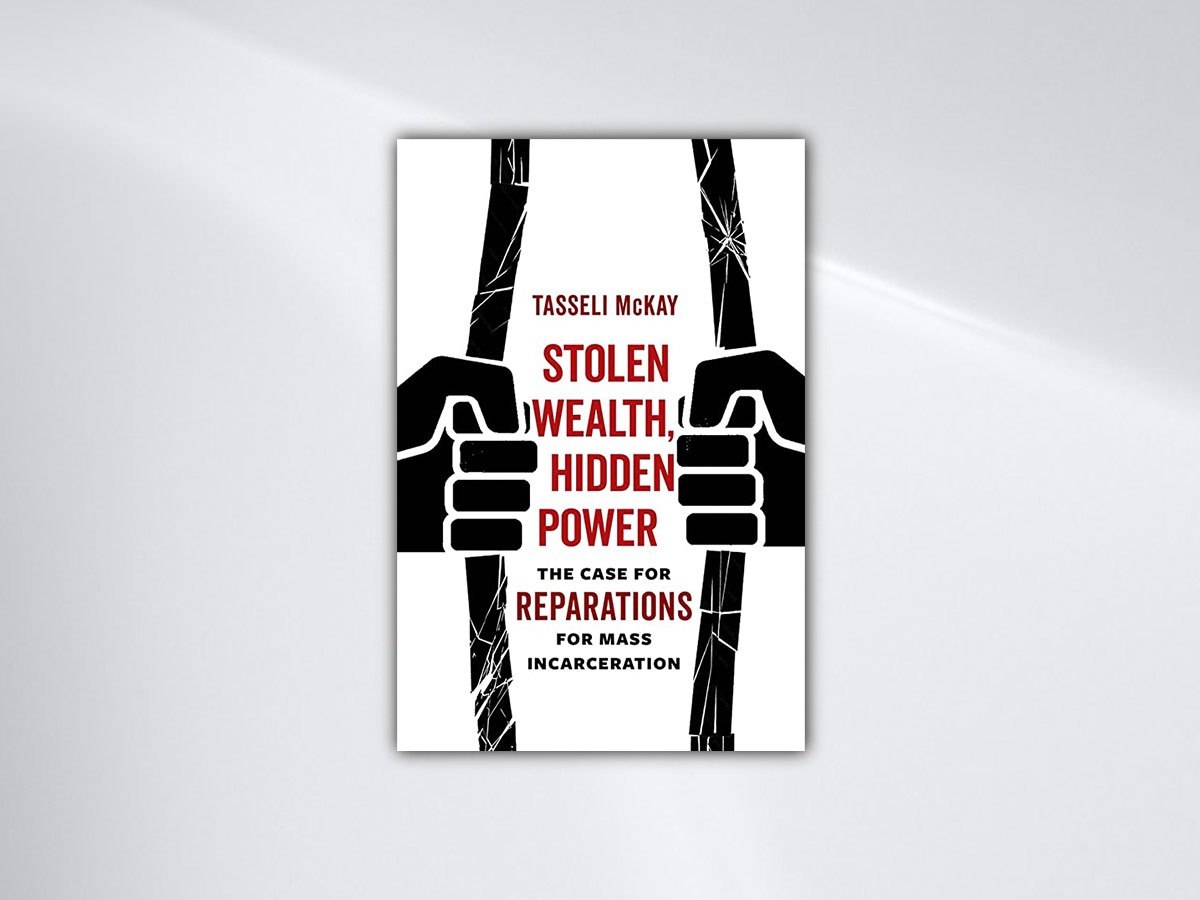
June 19, 2020; NPR
“I think there’s racism in the United States still, but I don’t think that the law enforcement system is systemically racist,” William Barr, US Attorney General stated on June 7th on CBS’ Face the Nation.
Less than ten days later, the United Nations Human Rights Council (UNHRC) in Geneva, Switzerland, announced it would hold an urgent debate focused on US human rights violations stemming from police brutality, systemic racism, and violence against peaceful protesters. This announcement came in response to a Burkina Faso proposal made on behalf of 54 African nations, denouncing actions within the US stemming from the deaths of George Floyd, Breonna Taylor, Ahmaud Arbery, Rayshard Brooks, and countless others.
In submitting its application, Burkina Faso UN representative Dieudonné W. Désiré Sougour remarked, “The tragic events of 25 May in Minneapolis in the US which led to the death of George Floyd led to protests throughout the world against injustice and police brutality that persons of African descent face on a daily basis in many regions of the world. The death of George Floyd is unfortunately not an isolated incident.”
Last Wednesday, these hearings took place—only the fifth such “urgent debate” to occur at the UNHRC in the past 14 years. At the hearing, representatives debated what next steps the body might take, including the possibility of conducting a formal inquiry.
The UNHRC can establish an independent international commission of inquiry, which is one of the UN’s highest levels of investigations. This has been done in the past in areas of mass conflict, as seen in Syria and the Rwandan genocide. Once established, these investigative missions not only gather information but also recommend measures to remediate violations, provide justice and reparations to victims, and hold perpetrators to account. Exposing findings and providing high-level pressure for accountability are unique assets these UN commissions can provide with their global platform.
An international commission of inquiry is exactly what George Floyd’s brother, Philonise Floyd, advocated at the hearing:
My brother, George Floyd, is one of the many black men and women that have been murdered by police in recent years. The sad truth is that the case is not unique…The way you saw my brother tortured and murdered on camera is the way black people are treated by police in America. You watched my brother die. That could have been me…
Sign up for our free newsletters
Subscribe to NPQ's newsletters to have our top stories delivered directly to your inbox.
By signing up, you agree to our privacy policy and terms of use, and to receive messages from NPQ and our partners.
I’m asking you to help him. I’m asking you to help me. I am asking you to help us: Black people in America.
This hearing occurred without an official US representative, because the US withdrew from the Human Rights Council (HRC) two years ago, with then-UN Ambassador Nikki Haley calling the body, “hypocritical and self-serving.” The US representative in Geneva, Ambassador Andrew Bremberg, commented to National Public Radio, “We are not above scrutiny; however, any HRC resolution on this topic that calls out countries by name should be inclusive, noting the many countries where racism is a problem to be addressed.” This alludes to a consistent White House trend of not wanting to be held accountable to international organizations and agreements, as seen in US withdrawals from the Paris Climate Agreement, Iran Nuclear Agreement, and recent freezing of World Health Organization (WHO) funding during a global pandemic that has taken at least 468,000 lives globally.
This behavior by the Trump administration is not outside of the norm of US disregard for international treaties. For example, President Barack Obama failed to move forward the ratification of the Convention on the Elimination of All Form of Discrimination against Women (CEDAW), Convention on the Rights of the Child (CRC), or the Convention on the Rights of Persons with Disabilities (CRPD) during his administration.
Philonise Floyd’s advocacy is hardly the first time US systemic racism and white supremacy issues have been brought to the UN’s doorstep. W.E.B. Du Bois, on behalf of the NAACP, submitted a petition in October 23, 1947, to the recently created UN demanding accountability for human rights violations against Black people in the US. The 96-page document petitioned for protection from the lasting effects of slavery, Jim Crow, and systemic discrimination.
Back in 1964, Malcolm X issued a similar call, saying that the only surefire way to excise racism from the US was for the UN to launch an inquiry in the same way that South African apartheid had been made into “an international problem.” The UN demurred in the past, but the world has changed. Back in 1964, for instance, close to a third of today’s African countries were still controlled by European colonial powers.
In response to Philonise Floyd and the 54 African countries, Reuters reports that the UNHRC agreed to launch a year-long formal inquiry to investigate systemic racism against people of African descent. However, direct mention of the US was stripped from the resolution. This action sparked intense criticism from Jamil Dakwar, director of the human rights program of the American Civil Liberties Union (ACLU), who remarked, “It is absurd that the final resolution passed by the United Nations strips mention of the United States, where police kill people, particularly Black people, at alarmingly higher rates compared to other developed countries.”
Nonetheless, former Chilean president and current UN Human Rights high commissioner Michelle Bachelet is calling for swift reforms and decisions. She is urging countries to confront legacies of structural racism, slavery, and colonization through the process of formal apologies, truth telling, and reparations.
Bachelet states, “We should go beyond existing recommendations. We need to build on what has worked from the enormous body of work and experience we already have…time is of the essence. Patience has run out. Black lives matter. Indigenous lives matter. Their life with people of color matter. All human beings are born equal in dignity and rights.”—Chris Cannito












